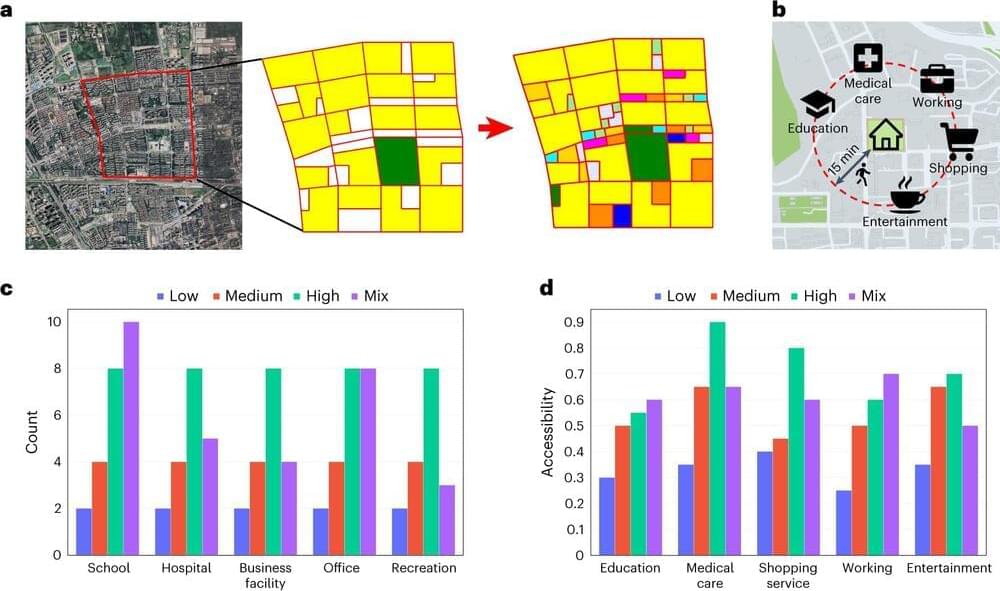A team of urban planners and information scientists at Tsinghua University in China has found that an AI-based urban planning system was able to outperform human experts in creating urban planning designs. In their study, reported in the journal Nature Computational Science, the group describes the factors that were used in describing the ideal urban plan and how well their AI did when tested. Paolo Santi, with the MIT Senseable City Lab, has published a News & Views piece in the same journal issue outlining the work done by the team on this new effort.
For much of history, cities have been left to grow organically—immediate needs were determined and urban planners and engineers attempted to fulfill those needs. In many cases, such a haphazard approach to urban growth has led to less-then-optimal results. In more recent times, city officials and other planners have attempted to take a more logical approach to the problem by creating designs for areas to be developed that account for things like livability and pollution controls.
This has led to the development of urban planning as a science and the advent of professional urban development experts. This science can be extremely complicated due to the increasing number of variables that must be accounted for as the size of a new development increases. In this new effort, the research team found a way to apply AI to the problem to ease the burden.
